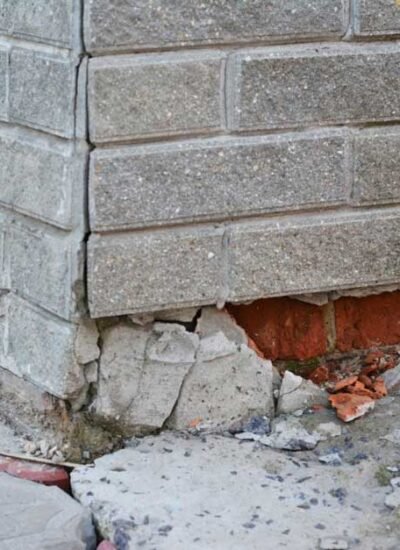Massachusetts, with its historic charm and diverse climate, poses unique challenges to residential and commercial building foundations. Many homeowners in the region encounter foundation issues at some point, particularly cracks that can range from minor aesthetic concerns to serious structural threats. Understanding the underlying causes of these foundation cracks and knowing how to prevent them is crucial for protecting property value and ensuring long-term safety. This guide explores the common culprits behind foundation damage in Massachusetts and outlines actionable strategies for prevention, with a special focus on the importance of professional foundation crack repairs in Massachusetts.
Climate and Soil: The Hidden Forces Beneath
The climate and soil composition in Massachusetts are two of the most significant contributors to foundation problems. The region experiences a full range of seasons, from hot summers to cold, snowy winters. These temperature shifts can cause the ground to expand and contract. When water freezes, it expands, and when it melts, it contracts. This freeze-thaw cycle puts repeated pressure on a foundation, particularly if the surrounding soil holds a lot of moisture.
Massachusetts is also known for its varied soil types. In many areas, expansive clay soils dominate, which swell when wet and shrink when dry. This continuous expansion and contraction puts uneven stress on foundations, leading to cracks. Sandy soils, while better at draining moisture, can shift more easily under heavy structures if not properly compacted. Moreover, glacial till—a mix of clay, sand, silt, and rock left behind by retreating glaciers—covers large portions of the state and creates inconsistent support conditions under homes.
Additionally, poor drainage compounds these issues. Without proper gutters, downspouts, and grading, water can collect around the foundation, seep into the soil, and increase hydrostatic pressure. Over time, this leads to the development of horizontal or stair-step cracks in foundation walls, particularly in basements.
Construction Flaws and Material Degradation
Aside from environmental influences, construction practices themselves play a major role in the longevity of a foundation. In Massachusetts, where many homes are over a century old, outdated construction methods are often to blame for existing cracks. Older foundations made from fieldstone or unreinforced concrete are especially susceptible to cracking as materials degrade over time.
Improper site preparation during construction is another common issue. If the soil was not adequately compacted before laying the foundation, it may settle unevenly, causing one part of the foundation to sink more than another. This differential settlement results in vertical cracks that can widen over time and compromise structural integrity.
Concrete quality also affects crack formation. Low-quality mixes, insufficient curing times, or the absence of control joints (which help manage cracking by guiding where cracks should occur) can all lead to premature deterioration. Even in modern builds, if shortcuts are taken during the construction process, homeowners may soon find themselves needing foundation crack repairs in Massachusetts to address early-stage damage that could have been prevented with better workmanship.
Water Infiltration and Plumbing Issues
Water infiltration is a major concern in Massachusetts, especially in regions prone to heavy rainfall or snowmelt. When water is allowed to pool around the base of a home, it slowly finds its way into weak spots in the foundation. Cracks then begin to form or widen as the water exerts pressure from the outside and continues to infiltrate, particularly during spring thaws.
In addition to external water sources, internal plumbing leaks also contribute to foundation damage. Undetected leaks from water supply lines, sewer pipes, or drainage systems can saturate the soil beneath the foundation. Over time, this erosion leads to soil displacement and sinking, often resulting in diagonal or corner cracks in the walls and flooring above.
In many older Massachusetts homes, the combination of deteriorating plumbing infrastructure and insufficient waterproofing systems leads to a compounding of these issues. Homeowners often notice musty odors, mold growth, or visible efflorescence (a white, powdery residue) along the interior foundation walls—signs that water infiltration is actively damaging the structure.
Tree Roots and Landscaping Mistakes
While often overlooked, landscaping decisions can significantly affect the stability of a home’s foundation. Trees planted too close to the foundation can cause problems in two key ways. First, their roots can grow under and around the foundation, exerting pressure that leads to cracking. Second, the roots absorb significant amounts of water from the soil. During dry spells, this can cause the surrounding soil to contract, increasing the likelihood of settlement and uneven foundation support.
Improper grading around the house is another contributor. If the slope of the land directs water toward the foundation rather than away from it, even small storms can result in standing water near the base of the structure. Over time, this not only weakens the foundation walls but also increases the risk of basement flooding.
Massachusetts homeowners often unknowingly create conditions that encourage foundation issues through misguided landscaping practices—installing non-permeable walkways that prevent drainage, building raised garden beds that trap moisture, or neglecting to clean out clogged gutters. Each of these oversights plays a role in setting the stage for foundation cracks.
Prevention and Professional Solutions
Preventing foundation cracks in Massachusetts starts with proactive maintenance and awareness of environmental factors. Homeowners should ensure that their properties have proper grading to channel water away from the foundation, along with well-maintained gutters and downspouts. Regular inspections, especially after severe weather, can help identify early signs of movement or water infiltration before major damage occurs.
Waterproofing solutions such as exterior membrane coatings, interior sealants, and sump pump installations are all effective preventive measures. Installing French drains or curtain drains can also redirect water away from vulnerable areas. For homes with older foundations, it may be necessary to retrofit with modern waterproofing or stabilization systems, especially if recurring issues arise.
When cracks do appear, timely intervention is key. Professional foundation crack repairs in Massachusetts often involve epoxy injections for smaller cracks or carbon fiber reinforcement for structural ones. In more severe cases, underpinning or piering may be required to stabilize the foundation and prevent further movement. It is essential to consult with licensed contractors who understand the specific challenges of Massachusetts geology and weather patterns.
Beyond reactive fixes, long-term solutions include soil testing before any major renovation or construction project, using proper backfill materials, and choosing drought-resistant landscaping to minimize soil moisture fluctuations.
Conclusion
Foundation integrity is not a one-time concern but an ongoing responsibility. By staying informed and addressing the root causes of cracks—whether they stem from natural forces or human oversight—Massachusetts homeowners can protect their properties for generations to come. And when damage does occur, professional services for foundation crack repairs in Massachusetts offer peace of mind, ensuring that the home remains safe, secure, and structurally sound.





Leave a Reply